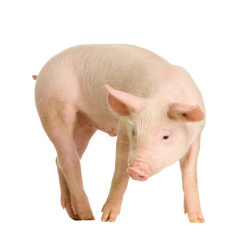Methionine Shortage
Posted: January 14, 2015 | Written By: Gary Asche, Ph. D. Nutritionist with Form-A-Feed Inc. since 1998

Methionine is an essential amino acid that is commonly added to swine and poultry rations fed corn-soybean meal based diets. Methionine is manufactured chemically from several hard to handle raw materials or intermediates (methyl mercaptan, propylene and hydrogen cyanide). Methionine has historically been in adequate supply with stable prices. Some of these intermediates used to make methionine were in short supply starting in early fall of 2014 resulting in shortages of methionine.
What can be done to get through these shortages? For most swine growing rations using more distillers dried grains with solubles (DDGS) will reduce or eliminate the need for additional methionine or threonine. For young pigs below 30 to 50 pounds, methionine and threonine are still needed, using high levels of DDGS is not recommended due to poor utilization and reduced performance.
Methionine is needed in higher amounts by poultry fed corn-soybean meal diets compared to pigs. It is difficult to replace methionine sources in poultry (broilers, layers and turkeys). Use of DDGS can reduce the levels of methionine and threonine in poultry rations similar to swine.
One other option that can slightly reduce and conserve methionine is to use trace minerals chelated with methionine or methionine hydroxyl analogue (MHA). The level of methionine is lower, but is an option.
The shortage is predicted to last until May or June. A new methionine plant in Asia came on-line in November and other plants from others manufacturers are also planned, which will help. These will help reduce this methionine shortage and may help to avoid future ones.